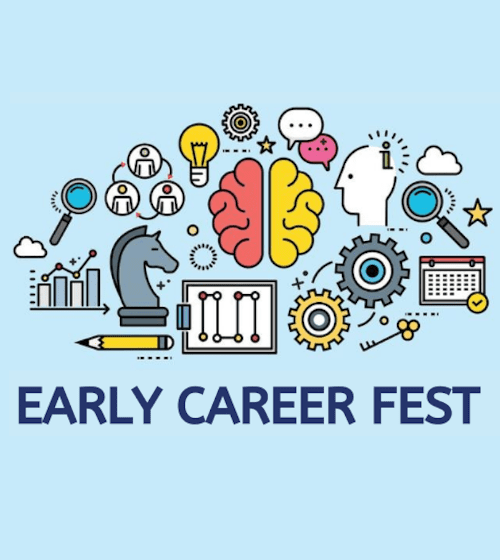
LISA STEPHENSON AND RACHEL LOFTHOUSE, CARNEGIE SCHOOL OF EDUCATION, LEEDS BECKETT UNIVERSITY, UK Introduction Oral language skills underpin children’s educational success and enhance positive cognitive, social, emotional and life outcomes. However, significant numbers of children struggle to develop competence in speaking and listening, especially children from areas of high economic deprivation (Dobinson and Dockrell, 2021). […]

Sophie Smith-Tong, Teacher and Founder, Mindfulness for Learning, UK At the heart of creating an innovative and effective curriculum is enabling students to feel a sense of belonging and connection. American Psychologist Louis Cozolino states that ‘Children learn best when they feel protected and connected’ (2013, p. 241), so how can educators ensure that children […]

SOPHIE DICKIN AND AMELIE THOMPSON, GIPSY HILL FEDERATION, UK Introduction The proportion of pupils identified as having a special educational need or disability (SEND) has risen from 14.9 per cent in 2019 to 16.6 per cent in 2022 (DfE, 2019, 2022). There is an increased demand for special school places without a corresponding increase in […]

GEORGE DAVIES-CRAINE, SUBJECT LEADER FOR GEOGRAPHY AND DIGITAL LEARNING LEAD, DR CHALLONER’S GRAMMAR SCHOOL, UK Introduction Oracy is a vital aspect of a student’s education and way of learning, covering all verbal communication skills from presenting and questioning to storytelling, negotiating and listening. Teaching students effective oracy, ensuring that they are able to articulate themselves […]

Adam Giblin, Northwood College for Girls, UK Introduction Problem-solving has always been a fundamental aspect of education. In the humanities, the problems with which we deal are often centred on society and justice, with no clear right or wrong solutions – only better or worse ones. Many of the better solutions relate to particular advocacy […]

Beng Huat See, Durham University Evidence Centre for Education, UK Leslie Blanchard, Leadership Development Institute, Louisiana State University, USA Kulwinder Maude, Durham University Evidence Centre for Education, UK David Kryštof, Institute of Lifelong Learning, Mendel University, Czech Republic Christine Callender, University College London, IOE, UK Samantha Wilkes, Leeds Trinity University, UK Introduction One of the […]

This case study is part of a bitesize CPD learning unit on trauma. In this audio clip, we hear from Jules Sanders and Megan Hornsby from School for Inspiring Talents. They discuss how they meet the needs of students who have experienced trauma in their specialist setting. Further reading Burke Harris N (2014) How childhood […]

Young children’s graphical representations are as valuable to mathematical learning as their early mark-making is to their writing development (Carruthers and Worthington, 2011). They support deep-level learning and provide an important foundation for the future. In this article, we explore the development of children’s mathematical graphics in the Early Years, how this can be supported […]

Introduction Before we were out of the woods with the COVID-19 pandemic, we knew that additional support would be needed for the pastoral care, mental health and wellbeing of the children we teach. A whole school approach was needed to triage children and identify their needs, putting support in place at different levels, depending on […]

This video shows practitioners supporting young children’s learning at Sheringham Nursery School and Children’s Centre in east London, a maintained nursery school for children aged two, three and four. The setting works closely with parents and carers and is fully inclusive, with a number of places prioritised for children who have special educational needs […]

Chandrika Devarakonda, Associate Professor of Diversity and Inclusion, Faculty of Education and Children’s Services, University of Chester In this video, Chandrika Devarakonda discusses approaches to decolonising and diversifying the curriculum in early childhood education, including: the actions practitioners can take to decolonise and diversify their practice how we can move beyond tokenism the barriers […]

Polly Crowther, Co-Founder, Early Insights, ELE, East London Research School, UK What parents do at home makes a huge difference to children’s progress (EEF, 2021). We know that play is a powerful way for young children to learn, and we know that sometimes parents find play difficult (Gutman and Feinstein, 2008). Research into the barriers […]

Rebecca Curtis, (Associate Dean, Learning Design) and Helena Moore, (Dean, Learning Design) Ambition Institute The important role that professional development and training can play in raising quality in Early Years provision is well reported (Callanan, 2017; Kalitowski, 2016; Mathers and Smees, 2014, OECD, 2012), just as it is for teaching quality (Fletcher-Wood and Zuccollo, 2020; […]

Ann-Marie Argyropulo-Palmer, Subject Leader for Music, University of Birmingham School, UK Whether introduced by individual teachers or employed school-wide by leaders, routines – a specific sequence of actions regularly followed – are a common feature of UK classrooms (DfE, 2011). Routines as recommended classroom practice can also be seen at a national level, with the […]

Jean Gross, independent consultant and author, UK Nicola Noble, co-headteacher, Surrey Square Primary School, UK; Trustee, Magic Breakfast, UK Liz Robinson, Co-Director, Big Education, UK; Trustee, National Literacy Trust, UK A large body of research (Castro et al., 2015) has found substantial associations between students’ attainment and the extent of their parents’ engagement with their […]

This case study is part of a series of short online learning courses on decolonising and diversifying the curriculum. Chartered College of Teaching members can access this learning for free. This is a case study from Module 4, ‘Approaches to decolonising and diversifying the curriculum’, of a series of 6 online courses. The module includes a variety […]

Curriculum in the Early Years Ofsted’s consultation about its new education inspection framework (2019), with its focus on the curriculum, is leading Early Years practitioners to wonder what a curriculum for the youngest children might look like. It is, perhaps, useful to begin the discussion by outlining some of the things that we do not […]

Chartered College of Teaching ¬∑ Children’s agency and the curriculum The curriculum is a vital part of education because it has such an important influence on what learners experience in classrooms during the school day. Research on curriculum aims, knowledge and control have been, and continue to be, central to what are known as […]

I am going to begin this piece with a bold statement: The overall purpose of schooling is pastoral. I know that this is likely to be regarded as a controversial statement, or one that is simply wrong. Some readers will wish to problematise the obvious false dichotomy that I seem to have presented between the […]

In the second webinar of ECFEST 2021, Joe Treacy (Head of Membership, Chartered College of Teaching) was joined by Karl C Pupé (Author and Speaker, Action Hero Teacher) who gave a presentation on strategies for managing behaviour and creating an effective classroom culture. The ‘Trust Mountain’ model of Behaviour Management and how it can help […]




















